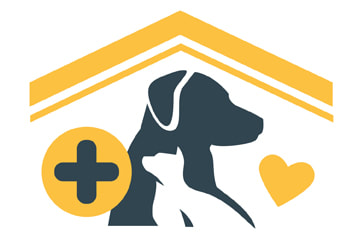Dog Vaccination Schedule and Costs - The Definitive New Zealand Guide
Our guide explains everything you need to know to protect your canine companion. From understanding the importance of vaccinations to managing the associated costs, we've got you covered so that you stay informed and keep your dog happy and healthy.
Updated 9 February 2024
Summary
Know This First: Why Are Vaccines Crucial?
Our guide covers schedules, costs, and frequently asked questions to help explain vaccinations in detail. We cover:
- Most dogs are vulnerable to various viruses, which can often be fatal and easily avoidable with a vaccination. Vaccinating your dog protects it from potentially deadly diseases that are easily preventable, ensures pet insurance policies are valid, and ensures that your dog can be housed in a boarding kennel if and when you're away.
- Vaccines are given to dogs when they're puppies, as this is when they're most at risk to replace internal antibodies running out and boost their immune system.
- Depending on the dog and the risks, booster vaccinations can be given quarterly, annually or every three years, depending on the disease being vaccinated against.
- Vaccinations focus on what vets call the 'core diseases' - Canine Distemper (closely related to the measles and rinderpest viruses), Canine Parvovirus (an intestinal virus) and Hepatitis. These are
- Optional or elective vaccinations include protection against Canine Cough and Leptospirosis; while these vaccinations don't guarantee your dog won't get sick, they greatly reduce the risk of complications and death if it does get infected.
- Vets will discuss with dog owners the appropriate vaccines for their dogs and the recommended vaccination schedule. This conversation will include guidance on the timing of your puppy's initial vaccines and the subsequent annual vaccinations. Below are some commonly asked questions about dog vaccines and their importance.
Know This First: Why Are Vaccines Crucial?
- Vaccines are pivotal in enhancing your dog's immune system's ability to fight diseases. They typically work by introducing a harmless version of the disease-causing virus or organism to your dog's body.
- This exposure safely educates their immune system to recognise and combat the actual virus if encountered in the future, thereby minimising its impact or potentially preventing the disease altogether.
Our guide covers schedules, costs, and frequently asked questions to help explain vaccinations in detail. We cover:
Core vs Non-Core Vaccinations - What You Need to Know
Core Vaccinations are essential for all dogs, regardless of their lifestyle and exposure to other dogs. They protect against widespread, highly contagious, or generally severe diseases. Core vaccines New Zealand Vets recommend include Canine Distemper, Canine Hepatitis, and Canine Parvovirus, covered by an all-in-one vaccine called Vanguard Plus 5, which we explain below. Non-core vaccinations are administered based on a dog's specific risk factors, such as environment, travel habits, and exposure to other dogs. These may include vaccines for Bordetella bronchiseptica (kennel cough), Leptospirosis, and Canine Influenza.
The Importance of Early Vaccination in Puppies and Common Vaccination SchedulesMost New Zealand vets will suggest that puppies begin their vaccination journey at around six weeks of age, which is crucial for building a robust immune system. This early stage of life is when they are most vulnerable to infectious diseases, as the natural immunity provided by their mother's milk begins to wane. The first year of a puppy's life is particularly critical for vaccinations, requiring several booster shots to ensure full protection.
The Importance of Early Vaccination in Puppies and Common Vaccination SchedulesMost New Zealand vets will suggest that puppies begin their vaccination journey at around six weeks of age, which is crucial for building a robust immune system. This early stage of life is when they are most vulnerable to infectious diseases, as the natural immunity provided by their mother's milk begins to wane. The first year of a puppy's life is particularly critical for vaccinations, requiring several booster shots to ensure full protection.
Puppy and Dog Vaccination Schedule
To ensure optimal protection, most vets will follow this general vaccination timeline:
Age |
Vaccinations Required |
6-8 Weeks |
The initial vaccination series typically includes the first doses of core vaccines. |
10-12 Weeks |
The first booster shot is crucial to strengthen the immunity provided by the initial vaccine. |
14-16 Weeks |
The second round of booster shots. This further reinforces the dog's immune response against key diseases. |
16 Months |
To ensure continued immunity, a critical booster shot is usually given one year after the last puppy booster. |
Annually Thereafter |
Most dogs require annual vaccinations to maintain immunity. However, this can vary based on the vaccine and your dog's health. Some modern vaccines may offer longer protection, allowing for extended intervals between boosters. |
Older Dogs |
Continue regular vaccinations, as older dogs can have weaker immune systems. The vaccination schedule might be adjusted based on their overall health and lifestyle - your vet will recommend a tailored schedule. |
Additional Considerations:
- Health Check-ups: Each vaccination visit is also an opportunity for a general health check-up. Your vet can monitor your dog's overall health and development.
- Tailored Plans: Every dog is unique. Factors like breed, health history, lifestyle, and travel habits can influence the vaccination schedule. Your vet will provide a tailored plan to suit your dog's needs.
Get Pet Insurance Quotes With Our Top Insurers
|
Our pet insurance research highlighted a shortlist of price and value-leading pet insurers.
|
Christopher Walsh
MoneyHub Founder |
Core Puppy and Dog Vaccination Costs
Based on vet research conducted in February 2024, the cost for the full course of puppy vaccinations typically ranges between $100 and $200, including vet consultations and visits. This includes all three rounds of essential vaccines needed in the early stages of a puppy's life.
Understanding Vanguard Plus 5 - A Popular Choice in Dog Vaccination
Understanding Leptoguard and its Protection Against Leptospirosis
Annual Dog Vaccination Costs:
Many vets suggest adding a Leptospirosis vaccine such as Leptoguard and also a Kennel Cough vaccine.
Understanding Vanguard Plus 5 - A Popular Choice in Dog Vaccination
- Vets around New Zealand commonly vaccinate dogs using Vanguard Plus 5, which is popular given its comprehensive protection against several critical canine diseases - Canine Distemper Virus, Canine Adenovirus Type 2 (CAV-2), Canine Parainfluenza Virus, and Canine Parvovirus.
- It's likely that your dog will be given Vanguard Plus 5 from the start, given its proven ability to build early immunity in puppies, which is crucial for their development and long-term health.
Understanding Leptoguard and its Protection Against Leptospirosis
- Leptoguard is another essential vaccine designed to protect dogs from leptospirosis, a particularly concerning bacterial disease due to its ability to affect multiple animal species, including humans.
- Leptospirosis can lead to severe health issues in dogs, including kidney damage and liver failure, and can be fatal if not addressed promptly.
- While Vanguard Plus 5 covers a broad range of viral diseases, Leptoguard targets a bacterial threat, making it a critical component of a comprehensive dog vaccination program. These vaccines play a crucial role in safeguarding dogs' health against viral and bacterial diseases, so they will likely be administered annually as part of their booster schedule.
Annual Dog Vaccination Costs:
- Vanguard Plus 5 - around $40 plus vet consultation fee
- Leptoguard - around $30 to $40 (optional vaccine)
- Kennel Cough - around $30 to $40 (dog optional vaccine)
Many vets suggest adding a Leptospirosis vaccine such as Leptoguard and also a Kennel Cough vaccine.
Does pet insurance cover the costs of initial and/or annual vaccinations?
It depends on the policy and the insurance provider. Some pet insurance policies offer wellness or preventive care coverage, which may include vaccinations. This is often an additional coverage option compared to a standard pet insurance policy.
If you're unsure, read the fine print of your pet insurance policy and look for terms like 'wellness,' 'routine care,' 'preventive care,' or 'vaccinations' to understand what is covered. If it's not clear, contact the insurer and ask.
Our guide to pet insurance policies explains more about the different options.
If you're unsure, read the fine print of your pet insurance policy and look for terms like 'wellness,' 'routine care,' 'preventive care,' or 'vaccinations' to understand what is covered. If it's not clear, contact the insurer and ask.
Our guide to pet insurance policies explains more about the different options.
Dog Vaccination Schedule and Costs - Frequently Asked Questions
Our list of common queries and answers below outlines what's important. If you have further questions, the best person to ask if your vet.
How often do dogs need to be vaccinated?
Most dogs require annual booster vaccinations after the initial series as a puppy. However, some modern vaccines offer longer protection, potentially extending the interval between boosters.
Are there any side effects of dog vaccinations?
Side effects are generally mild and short-lived, including soreness at the injection site, mild fever, or lethargy. Severe reactions are rare but require immediate veterinary attention.
Can older dogs skip vaccinations?
No, older dogs should continue to be vaccinated. Their immune system can weaken with age, making them more susceptible to diseases.
Is it necessary to vaccinate indoor dogs?
Yes, even indoor dogs should receive core vaccinations as many viruses can be brought into the home on shoes and clothing.
Can vaccinations guarantee my dog won't get sick?
While vaccinations significantly reduce disease risk, no vaccine offers 100% protection. However, vaccinated dogs who do get sick generally experience milder symptoms.
Related Guides





